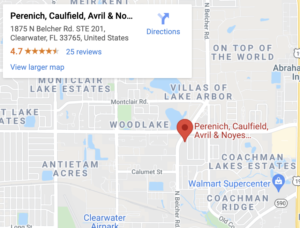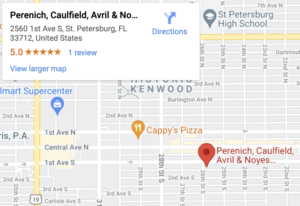
Most people have heard of the statute of limitations, although not everybody is clear on how it works.
Misunderstanding the statute of limitations or how it applies to your case, however, could kill your personal injury claim and leave you with nothing.
Table of Contents
The Purpose of Establishing a Statute of Limitations
Imagine that tomorrow, someone files a wrongful death lawsuit over the Kennedy assassination, which occurred in 1963. How much sense would that make? The purposes of the statute of limitations are:
Statutes of limitations apply not only to lawsuits but to criminal offenses as well.
The Personal Injury and Wrongful Death Statutes of Limitations
Every state and the District of Columbia set their own statute of limitations deadline for filing personal injury and wrongful death lawsuits. Personal injury limitation periods range from one year to six years after the accident. If the claim is based on a continuing course of conduct (nursing home abuse, for example), the “date of the accident” becomes the date of the most recent incident.
In Florida, the personal injury statute of limitations deadline is two years after the date of the accident. If the victim dies from their injuries, the victim’s estate executor has until two years after the victim’s date of death to file a wrongful death lawsuit.
Special Case: Florida Car Accident Claims
Florida is one of about a dozen states that administers a “no-fault” auto insurance system. Most of the time, if you suffer a car accident, you must file a claim against your own personal injury protection (PIP) insurance. You only have 14 days after the accident to seek medical treatment and file a claim.
Exceptions to the Ordinary Statute of Limitations Deadline
Several common exceptions apply to the personal injury statute of limitations. Nevertheless, every state’s law differs somewhat in the details.
The Discovery Rule
Some injuries are difficult to detect at first. Suppose, for example, that your doctor accidentally leaves a scalpel inside of your body during surgery. You might not realize what happened until some time after the accident.
If something like this happens, the statute of limitations is “tolled” (the countdown stops temporarily) until you know, or should know, of your injury and the cause of it. The discovery rule mainly applies to medical malpractice claims, but it can apply to other types of claims as well.
Minority
A minor (under 18) cannot file a lawsuit in their own name. Because of this, many states extend the statute of limitations deadline to give minors a chance to file after they turn 18. Florida, for example, allows a minor up to seven extra years to file a lawsuit.
This won’t help, of course, if the defendant was injured at five years old – even after the deadline, they will still be too young to file a lawsuit. In these cases, an adult can file a lawsuit on behalf of a minor.
Mental Incompetence
The statute of limitations might be “tolled” during a time when the injury victim is mentally incompetent.
The Defendant Is Out of State or Whereabouts Unknown
The state might toll the statute of limitations clock while the defendant is out of state or “whereabouts unknown” since it is impossible to notify such a defendant of the existence of the lawsuit.
The Statute of Repose: The Exception to the Exception
The statute of repose sets a hard deadline: no matter what exception to the statute of limitation might apply, your claim dies if the statute of repose deadline passes without you filing a lawsuit. For example, a typical statute of repose might be ten years after an accident.
How To Beat the Statute of Limitations Deadline: Steps To Take
Filing a lawsuit will beat the statute of limitations deadline. But what actions constitute “filing a lawsuit”? Do the following:
- File a lawsuit complaint with the court clerk of the appropriate court. Consider whether you belong in small claims court or regular court.
- The court will draft a summons to notify the defendant on how to respond to avoid a default judgment against them.
- Pay the filing fee, which might be several hundred dollars.
- Arrange for a neutral third party to “serve process” on the defendant. Serving process means delivering a copy of the complaint and the summons, in a legally permissible manner.
The defendant might try to evade service of process. However, you won’t necessarily miss the statute of limitations deadline just because the defendant is playing cat and mouse with you. To beat the statute of limitations deadline, you must pursue service of process diligently.
If you do, then you will have beaten the statute of limitations deadline as of the filing date of the complaint. If you don’t, the court might retroactively declare that you have missed the statute of limitations deadline.
Suing the Government: A Different Set of Rules
If you want to file a lawsuit against the State of Florida or any of its municipalities or agencies, you must file a written notice of your claim to the appropriate agency before you file your lawsuit. The agency then has six months to admit or deny your claim. You cannot file a lawsuit while the agency is considering your claim.
Workers’ Compensation Claims
A Florida workers’ compensation claim applies different deadlines. To enforce a workers’ compensation claim, you don’t go to court at all except for an appeal. It is an administrative claim, and the deadlines are far more stringent. You must usually report your injury or illness within 30 days, for example.
What Happens If You Miss the Deadline?
If you miss the statute of limitations deadline and later try to file a lawsuit, the defendant will ask the judge to dismiss your claim, and the judge will do so. If you try to negotiate your claim after missing the statute of limitations deadline, the defendant will simply ignore you.
Contact an Experienced St. Petersburg Personal Injury Lawyer if You Have Any Concerns
Interpreting the statute of limitations and applying it to your claim can be tricky. That’s a problem, because the stakes are just too high to get it wrong. Contact a lawyer if you even suspect that you might be facing a statute of limitations issue.
Since almost all Clearwater personal injury lawyers charge their legal fees on a contingency fee basis, you will only pay legal fees if you win money for your claim.
Contact the Pinellas County Personal Injury Law Firm Of Perenich, Caulfield, Avril & Noyes Personal Injury Lawyers for Help
For more information, please contact the Clearwater and St. Petersburg personal injury law firm of Perenich, Caulfield, Avril & Noyes Personal Injury Lawyers at the nearest location to schedule a free consultation today.
We serve in Pinellas County and its surrounding areas:
Perenich, Caulfield, Avril & Noyes Personal Injury Lawyers – Clearwater
1875 N Belcher Rd. STE 201,
Clearwater, FL 33765,
United States
(727) 796-8282
Perenich, Caulfield, Avril & Noyes Personal Injury Lawyers – St. Petersburg
2560 1st Ave S,
St. Petersburg, FL 33712,
United States
(727) 349-1728


